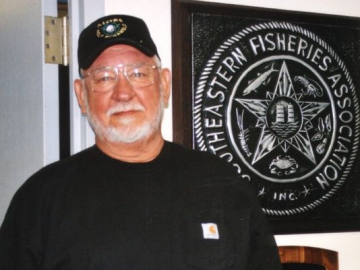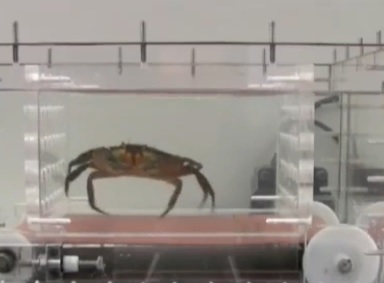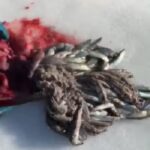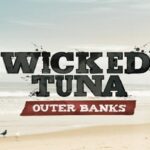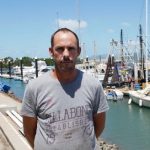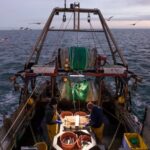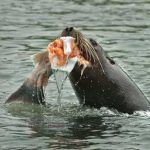Monthly Archives: July 2018
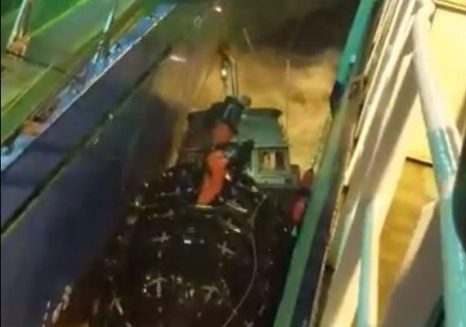
F/V Kristi sinks near Clark’s point, all onboard survive
Shortly after midnight on Saturday, July 14, the F/V Kristi lost power. The tide was coming in, and the boat floated in the current at 5 knots. While its skipper Jan Medhaug and deckhand Kyle Brojakowski worked to restore power to the 32-foot aluminum drift boat, Medhaug’s wife, Kayla Breeden went to the stern to hang a protective buoy. “When you’re out there fishing for that many days, you just think kind of everything is mundane, so I grabbed my buoy to go out there,” said Breeden. “I didn’t even put my rain jacket on and I almost didn’t put my boots on because I thought we were going to clear her.” She could see two large ships, which she estimated were “three football fields away.” >click to read<23:44
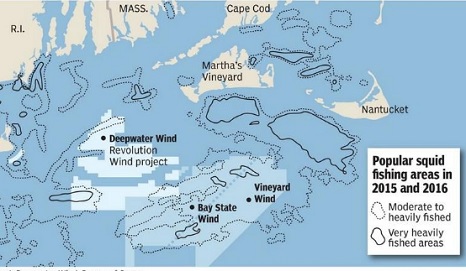
Now We’re Talking!! BOEM dressed down, wind farm companies get an earful at a meeting
Federal officials in charge of leasing ocean bottom land to offshore wind farm companies got an earful at a meeting with commercial fishermen Wednesday – and much of it was R-rated. There isn’t merely significant opposition to offshore wind farms; there is 100-percent agreement among the fishermen that the wind turbines will eventually put them out of business.,, Deepwater Wind, which has a project slated off the coast of Montauk called South Fork Wind and runs the Block Island Wind farm, was the subject of much of the ire and criticism,,, Ryan Fallon said he has spent his life on the water. “Everyone is against [the wind farms]. This is my life, my daughter’s life. I almost brought her here so you could look her in the eyes,” said Fallon, whose father was a commercial fisherman and bought him his first boat. “I’ve been doing this since I was 12. I’ll die before I let you take it away.” >click to read<20:37
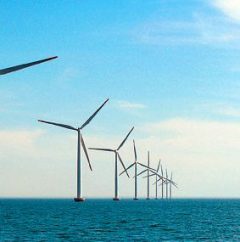
Deepwater Wind Offers Offshore Information, Fishermen Want Compensation
The Providence-based company recently announced a program to inform fishermen of where and when construction and other work occurs at the site of three wind facilities and their electric cables. The offshore wind developer hired liaisons to offer dockside information to fishermen at main fishing ports such as New Bedford, Mass., Point Judith, and Montauk, N.Y. Daily activity will be posted online about surveys, construction, and maintenance work. The updates will also be broadcast twice daily on boating radio channels, according to Deepwater Wind. Bonnie Brady, president of the Long Island Commercial Fishing Association, said the outreach by Deepwater Wind is window dressing. Deepwater Wind is “not doing anything at all. it’s a big, giant schmooze,” she said.,, Richard Fuka, president of the Rhode Island Fishermen’s Alliance, said he speaks with fishermen daily in Point Judith and he’s hearing the fishing stocks are down around the Block Island Wind Farm. >click to read<19:53
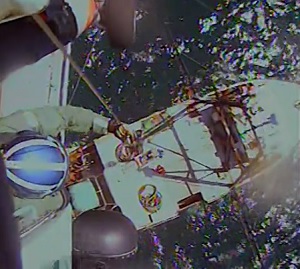
Coast Guard medevacs sick fisherman 6 miles off Nantucket
A Coast Guard Air Station Cape Cod aircrew medevaced a 40-year-old man experiencing abdominal pain Tuesday six miles southwest of Nantucket. The captain of the fishing vessel Provider notified Coast Guard watchstanders shortly after 2 p.m. of the sick crew member. An Air Station Cape Cod MH-60 Jayhawk helicopter crew was conducting prescheduled training in the area at the time and diverted to assist. The aircrew hoisted the fisherman to the helicopter and flew him back to Air Station Cape Cod where he was transferred to awaiting emergency medical services personnel. -USCG-19:29

Island Fishermen’s Wives Association Knife distribution effort aims to keep lobstermen safe
According to the federal Centers for Disease Control and Prevention, commercial fishing is consistently ranked as the most deadly occupation in U.S. industry. Sadly, that comes as no surprise to anyone who lives along the coast of Maine, especially the women who are members of the Island Fishermen’s Wives. For lobstermen, one of the greatest risks is becoming entangled in the line that connects lobster traps to their marker buoys and being pulled overboard. >click to read<19:01
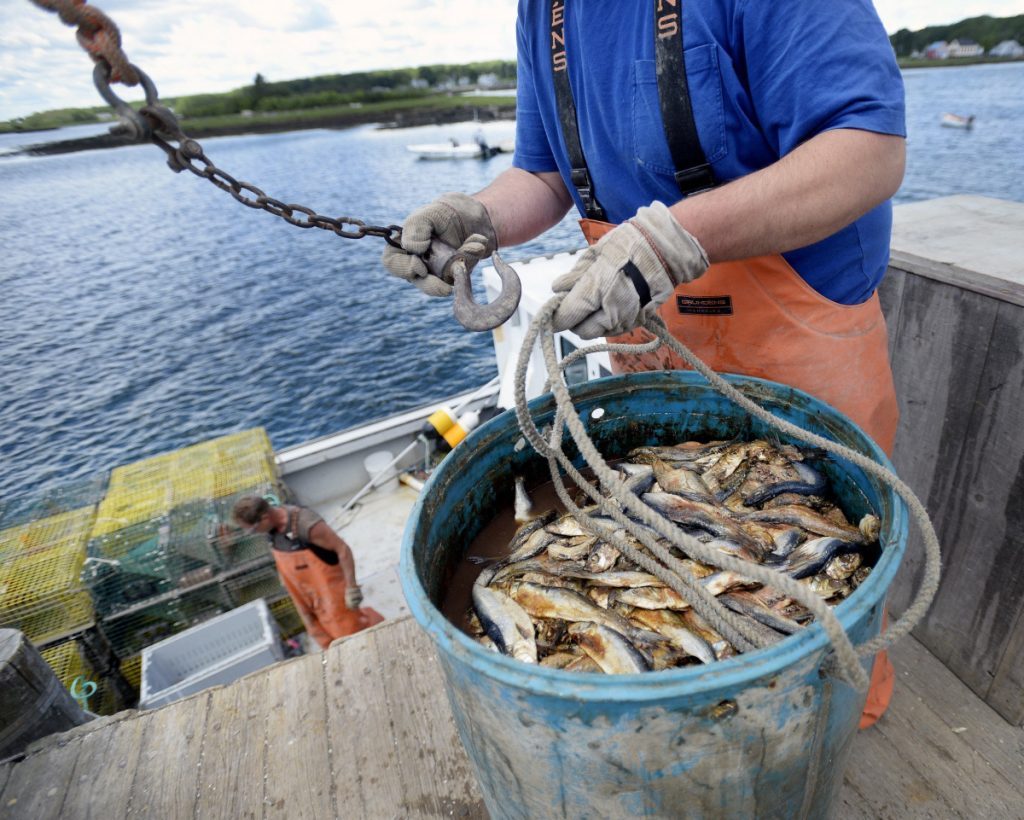
Maine: Pending bait shortage poses another threat to New England lobster industry
Regulators want to cap this year’s herring landings at last year’s levels, or 50,000 metric tons, and slash next year’s quota of the most popular lobster bait from 110,000 to 30,000 metric tons. They want to do this to offset record low numbers of newborn herring that are entering the fishery to replace those that are caught, eaten by other predators or die from natural causes. The 2019 quota could fall even lower if regulators adopt a separate proposal to leave more herring in the sea to feed the fish, birds and marine mammals that eat them, including Gulf of Maine species such as cunner, cod, seals, whales, puffins and terns. The New England Fishery Management Council could decide the issue as early as September. Eco-based Management. >click to read<10:51

The cost of offshore wind power: worse than we thought
A few days ago, the BBC’s Roger Harrabin mentioned a new suggestion that instead of cutting up redundant oil rigs, we should simply sink them to the bottom of the sea, where they would become artificial reefs that would encourage a flourishing of marine flora and fauna. Observant readers of his Twitter feed were of course quick to point out that this was exactly what BP had proposed for their Brent Spar platform nearly twenty years ago. At the time there was an outpouring from environmentalists, who accused the oil giant of deliberately polluting the seas.,, a recently published a paper on the potential decommissioning costs of all those offshore wind turbines that they are so keen on installing.,, costs for 34 turbines could reach £100 million ($131,654,735.40) >click to read<09:44
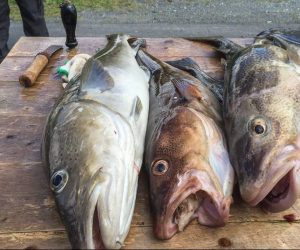
Harvey Jarvis – Ignore cod sentinel data at our peril
Twenty-three years ago, I helped lead a team that designed and implemented the cod sentinel inshore survey on Northern Cod (Southern Avalon, North East Coast and Labrador). The status of Northern Cod has been much in the news lately and the decision, by the Department of Fisheries and Oceans (DFO), to cut the commercial quota has been met with some stiff opposition from the FFAW-Unifor. This prompted me to do a little investigating to see what cod sentinel is telling us about Northern Cod. Based on a review of cod sentinel information, by opposing the 2018 quota reduction by DFO, I can only conclude that the FFAW-Unifor and the Groundfish Industry Development Council (GIDC) appear to be ignoring the last five years of sentinel data. According to information that I have been able to piece together, cod sentinel results are as follows: >click to read<09:03
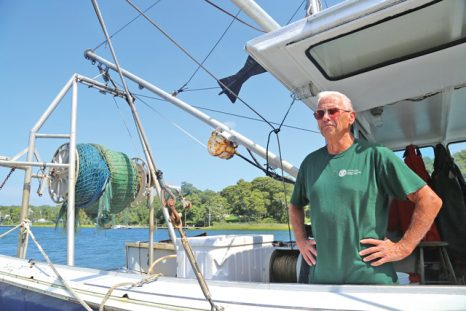
New York Commercial fishermen hit with two-week fluke fishing closure
The closure began Sunday, and when it reopens Aug. 1, fishermen will be limited to a daily limit of 50 pounds of fluke. “That’s not even a box of fish,” said Riverhead fisherman Phil Karlin, who noted boxes are typically 60 or 70 pounds. The state Department of Environmental Conservation that enforces the federal quota restrictions notified fisherman of the closure via mail several days before, saying it was necessary to preserve fish for the fall, Mr. Karlin said. “It’s putting a hardship on all fishermen,” Mr. Karlin said. “We’ve had it tough as it is. To close it in the middle of the summer like this is not good.” >click to read<07:49

Smuggling the “Codfather” Profits: Bristol County Sheriff Captain Convicted
A Captain with the Bristol County Sheriff’s Office was convicted today by a federal jury in connection with helping Carlos Rafael, known as the Codfather in the fishing industry, and the owner of one of the largest commercial fishing businesses in the U.S., smuggle the profits of his illegal overfishing scheme to Portugal. Jamie Melo, 46, of North Dartmouth, Mass., was convicted of one count of conspiracy to commit offenses against the United States and one count of structuring the export of monetary instruments. U.S. District Court Judge Denise J. Casper scheduled sentencing for Oct. 24, 2018. The jury acquitted the defendant of one count of bulk cash smuggling. >click to read<22:30

‘Deadliest Catch’ co-star Edgar Hansen pleads guilty to sexually assaulting teen girl
Reality-TV fisherman Edgar Hansen pleaded guilty to sexually assaulting a teenage girl in September, but he’ll face no jail time under a plea deal quietly reached last week with Snohomish County prosecutors. Instead, Hansen, 47, received a 364-day suspended jail sentence and was ordered to pay court fines and fees of $1,653, court records show. He also must undergo a sexual-deviancy evaluation and treatment and give a DNA sample to authorities.,, Hansen pleaded guilty Wednesday to fourth-degree assault with sexual motivation — a gross misdemeanor — admitting he intentionally kissed and touched the victim.>click to read<20:30
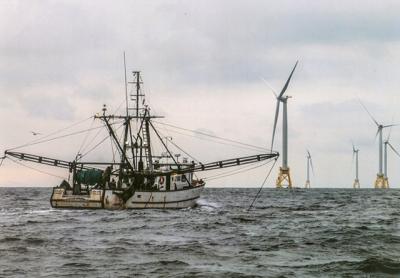
First U.S. Offshore Wind Developer Acts on Fishing Gear
U.S. offshore wind developer Deepwater Wind has adopted a first-of-its-kind procedure designed to prevent impacts to commercial fishing gear from its activities. Deepwater Wind’s Block Island Wind Farm is America’s first offshore wind farm, and the company is currently in active development on utility-scale wind farms to serve Rhode Island, Connecticut, New York, New Jersey and Maryland. The procedure was developed in close coordination with the commercial fishing industry and is based off extensive feedback from fishermen in ports up and down the Atlantic coast. Deepwater Wind believes that keeping fishermen informed is the key to preventing damage to fishing gear. >click to read<18:19
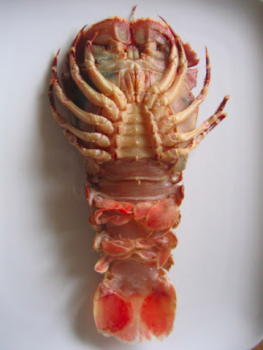
Bay lobster aquaculture developed in Tasmania
The Institute for Marine and Antarctic Studies (IMAS), under the University of Tasmania, has paved the way for the bay lobster (Thenus oriental) aquaculture industry in Tasmania, after developing a unique method to breed the resource commercially. Based at IMAS’s Taroona laboratories, the ARC Research Hub for Commercial Development of Rock Lobster Culture Systems began researching hatchery techniques for the resource, better known as Moreton Bay Bugs, in September 2017. The starting point for this project was the technique developed for the tropical rock lobster, of the Panulirus family. >click to read<15:24

Labrador harvesters want to see adjacency explicitly incorporated into new regulations
A bill currently before the Canadian senate being heralded by environmental and Indigenous rights groups doesn’t go far enough according to the organization that represents commercial fish harvesters in Labrador. Bill C68 seeks to amend the Fisheries Act and other laws to increase protection of fish and fish habitats. If passed, it will, among other things, also explicitly require the minister to take into consideration the protection of Indigenous rights prior to making any decisions on fisheries law and incorporate traditional Indigenous knowledge into the decision-making process. >click to read<14:44
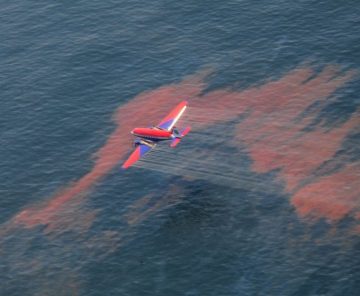
The Mississippi Coast is tired of waiting for BP money. It is time for action.
The Coast has waited far too long to learn the fate of the $700 million that has yet to be spent out of a $750 million settlement for economic damages from BP’s Deepwater Horizon oil disaster. We know the majority of the economic damage was inflicted on the people of Mississippi’s Coast. And we know that no rational argument has been made for spending the majority of the BP economic damages money anywhere but on the Coast. The Mississippi Gulf Coast’s lifeblood, tourism, was on life support. Its seafood industry was first shutdown and then mistrusted. Millions were invested to restore the country’s faith in Gulf shrimp and other delicacies. >click to read<12:22
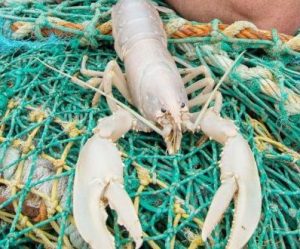
Extremely rare white lobster turns up in Bantry Bay
The whole country may have spent the past month basking in sunshine and getting as red as the proverbial lobster but for west Cork fisherman Donagh O’Connor, the warm weather has brought a rather more unusual example of the species: a very rare white lobster. The whole country may have spent the past month basking in sunshine and getting as red as the proverbial lobster but for west Cork fisherman Donagh O’Connor, the warm weather has brought a rather more unusual example of the species: a very rare white lobster. >click to read<11:47

Offshore wind topic blows back onto Ocean City agenda
Offshore wind farms near Ocean City’s coast will again come up for discussion at Monday’s Town Council meeting. Meghan Lapp, a fisheries liaison for Seabreeze Seafreeze Ltd. in Rhode Island, will outline concerns with how wind farms may affect commercial fishing, according to the agenda document. The presentation will also feature local fisherman George Topping. The addition of wind farms could restrict fishing areas, according to the presentation outline in the agenda documents. Deepwater Wind and US Wind received approval in 2017 to construct two wind turbine projects off of Ocean City. >click to read<09:56
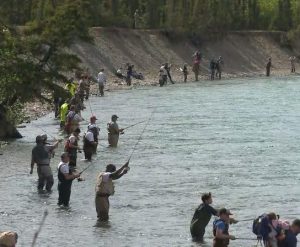
Kenai River anglers ask for closure of Cook Inlet commercial set netting
The Kenai River Sportfishing Association (KRSA) is calling for the closure of set net fishing on the Cook Inlet until adequate numbers of king and sockeye salmon enter the Kenai River. The organization is asking Gov. Bill Walker to direct the Alaska Department of Fish and Game to take action and help Kenai River salmon numbers rebound.,,, One commercial set netter agrees a closure could benefit harvests for both sides. “As a commercial set netter for almost 50 years, and speaking for myself,” Ken Coleman said, “I believe we commercial fisherman have always been in favor of department closures when the health of the fisheries is at risk, whether it be sockeyes, or Chinook or other species. >click to read<08:24
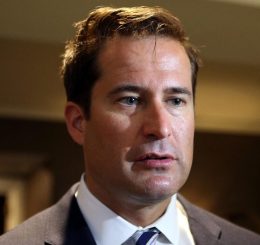
Dear Congressman Moulton, about that Bill? HR-200?
I have been a supporter of yours from day one. I donated money, made your signs, found sign locations, even had my family and some of my friends support you. And they did! I was surprised and disappointed to find out through our, yours and my local newspaper, that you had voted against Congressman Don Youngs Bill, HR – 200. As you know Seth, I have informed you of the issues our fisherman are facing such as untrusted and sometimes disputed science used by NOAA, the North East Canyon and Seamounts National Marine Monument off Cape Cod that our fishing boats depended on for whiting fishing, as fishermen from other ports are also shut out from their fisheries. Congressman, it seems as though you are not actually listening to your constituents. Sam Parisi >click to read<16:57
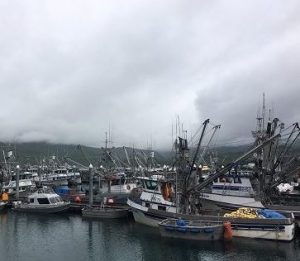
‘No fish and no hope’: Poor sockeye salmon run takes a toll on Chignik
A dreadful sockeye run in the Chignik salmon fishery, on the south side of the Alaska Peninsula, is imperiling commercial and subsistence fishermen and distressing the community there. In the Chignik salmon fishery, the sockeye escapement — or the number of fish allowed to escape past the fishermen to spawn — was about 190,000 fish as of Friday afternoon. That’s less than half of what the average figure usually looks like by now. Commercial sockeye fishing has been closed there all season, and subsistence fishing has been restricted. Tribal groups have requested a disaster declaration for the fishery from Gov. Bill Walker. >click to read<14:42
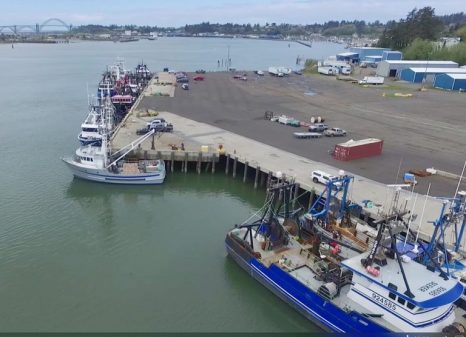
Newport Port Commission considers re-hiring Don Mann as “Interim” Port Manager
After several years of being adrift with financial uncertainties and worsening port facility maintenance, the Newport Port Commission on Tuesday is expected to hire an interim port manager while yet another new permanent port manager is recruited and hired. The last port manager was fired after a very short time on the job. The port manager before him struggled for several years trying to get the port some traction on finishing up the International Terminal but couldn’t close a deal with outside business interests. >click to read<14:07
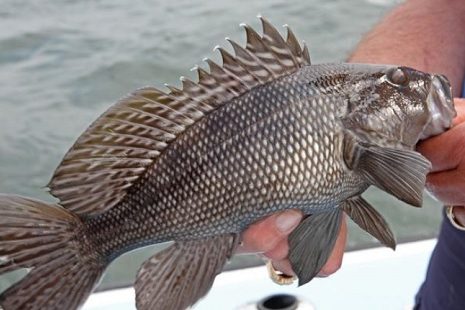
Black sea bass surge off R.I.
Scientists tell us that some fish will be winners and others losers as oceans warm. In Rhode Island, count lobster, silver hake and winter flounder among the losers, their numbers plummeting as climate change drives water temperatures higher. On the list of winners so far are squid, summer flounder, butterfish. And black sea bass. The population of the dusky-colored fish with striking blue accents has historically been strongest off the mid-Atlantic Coast, but over the past decade or so its numbers have spiked off New England and it is becoming a more important catch for the region’s fishermen. How they are managed will have important implications not only for those fish but for lobsters and other key species in the ocean ecosystem. >click to read<12:30
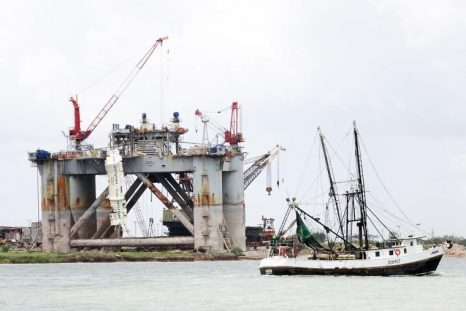
Shorthanded – Shrimp industry fears worker shortage
The Texas shrimp industry is celebrating a handful of recent legislative wins while also dreading next year’s shrimp season if changes aren’t made to the seasonal foreign worker visa program.
The Brownsville-Port Isabel shrimp fleet starts this season, which opens today, without enough workers. Andrea Hance, executive director of the Texas Shrimp Association, estimates that 70 percent of the fleet’s 140 trawlers will head out to the Gulf shorthanded. >click to read<10:51
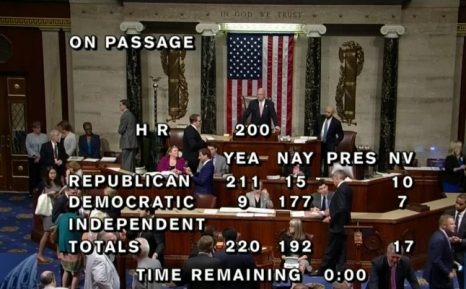
The MSA and Don Young’s partisan dilemma
“We must remain committed to the bipartisan, bicameral tradition of fisheries management,” Rep. Don Young wrote last Sunday, “and my legislation accomplishes just that.” He was referring to the reauthorization of Magnuson-Stevens Act. But when the House passed it on Wednesday, only nine Democrats voted in favor of it. Which explains why, in the same opinion piece, Young complained about “the hyper-partisan mentality” his “Democratic colleagues subscribe to.” Like the breakup of a marriage, there are two sides to this story. The reason why Young is arguing from both might be that he was caught in the middle. >click to read<09:00
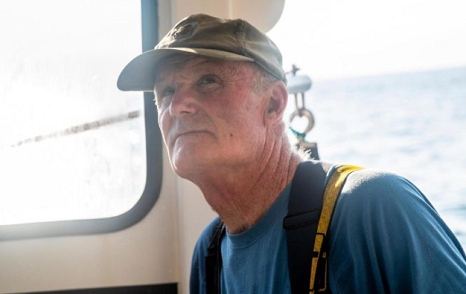
One man’s tale of lobstering 50 years in Long Island Sound – and simply loving it
John German hunted the delectable red crustacean for five decades. But as he motored his 40-foot boat, the Suzanne Marie, out of Mount Sinai Harbor at dawn Wednesday, he wasn’t looking for lobster. He was fishing for conch, a spiral-shelled mollusk beloved in Asia. The lobsters are nearly gone — and with them, the $100 million a year that they brought to Long Island. German, 71, is one of the last of the Long Island lobstermen, a group that once numbered as many as 700 but now counts only about a dozen members. The rough ride has been blamed on mostly warming waters and what folks call “the die-off,” the death of millions of lobsters in 1999 that lobstermen attribute to a concentration of mosquito insecticide that made its way into the sea. >click to read<07:04
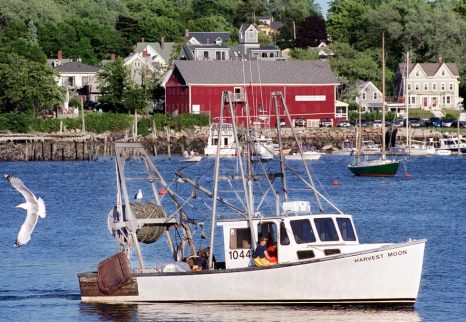
HR-200 – Gloucester fishermen ‘desperate’ for federal bill to ease catch limits
A bill passed by the U.S. House of Representatives earlier this week is being cheered by fishermen in Gloucester who are hoping for a lifeline for the struggling industry. “It’s desperate. We are in a desperate situation. We need a change,” said Angela Sanfilippo, president of the Gloucester Fishermen’s Wives Association. “It’s a good start.” The new law would allow more flexibility for fish populations to be rebuilt, and give more authority to the regional fishery management councils, which may be more in touch with the local industry.,,, Fishermen in Gloucester say the industry is in danger of disappearing without changes. “We’re down to about 60 fishermen, and every day it gets worse,” Sam Parisi said. >click to read<13:14
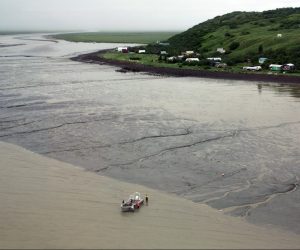
Set netting is a ‘mud experience’ and these fishermen can’t get enough of it
Mud is the tie that binds all set netters together, but some are better than others at traipsing through the gloop. We found three fishermen who couldn’t stop gushing about it. Alana Kansaku-Sarmiento has left set netting (somewhat reluctantly, it seems) to drift with the fishing vessel Marion-Ruth.,, I love, for some reason, the mud. And that’s a very personal reason that I would love Nushagak Point and set netting, but I happen to be one of those people who just loves walking in it, picking fish in it, dragging s**t — stuff — through it. I don’t know what it is. >click to read<12:20
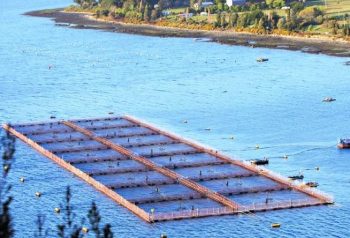
Chile fishermen race to recapture escaped salmon that could pose risk
Chilean fishermen were working yesterday to recover hundreds of thousands of salmon that escaped from a fish farm as environmentalists warned of possible risks if they are eaten by humans, the government said. A storm on July 6 damaged nine enclosures at Marine Harvest’s Punta Redonda Center near the southern city of Calbuco, freeing at least 600,000 salmon into the wild, the company said.,,, Some of the salmon had been injected with a course of antibiotics that was incomplete at the time of their escape, making them unfit for human consumption and prompting concern by environmental groups that the fish will make it into the food chain too early. >click to read<11:15






